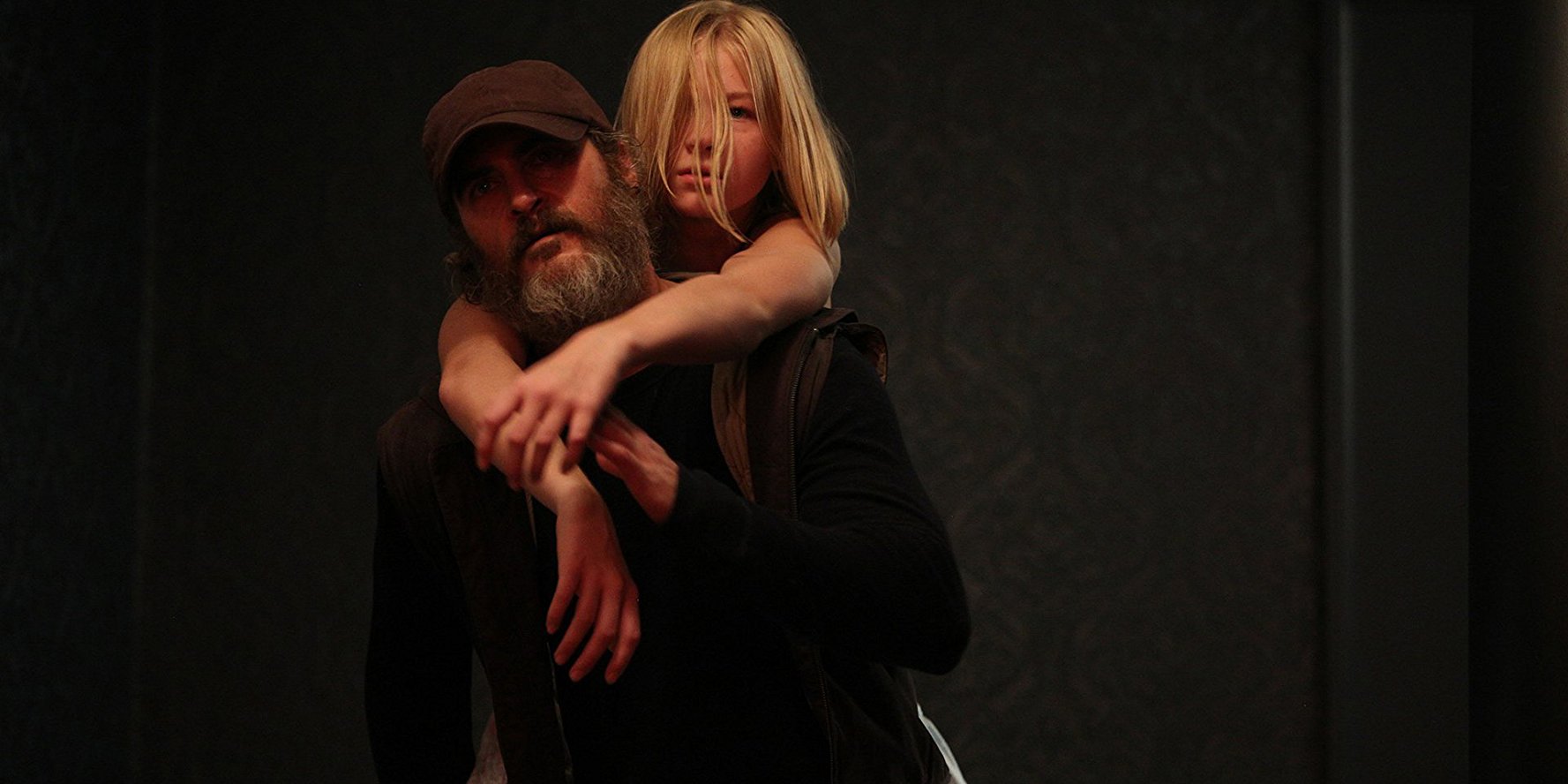Movie Info
Movie Info
- Director
- Lynne Ramsay
- Rating
- R
VP Content Ratings
- Violence
- 6/10
- Language
- 2/10
- Star Rating
Rated R. Running Time 1 hour 29 min.
Our content ratings (1-10): Violence 6; Language 2; Sex Nudity 1.
Our star rating (1-5): 4
Why are times not kept by the Almighty,
and why do those who know him never see his days?The wicked remove landmarks;
they seize flocks and pasture them…
There are those who snatch the orphan child from the breast,
and take as a pledge the infant of the poor.Job 24:1-2, 9.

Scottish director Lynne Ramsay serves up a dark film with an anti-hero wielding a ball peen hammer in such a way that you will never look at it again amongst your tools in the same way. You may find it at first as I did, very confusing with flashbacks to a little boy crying and a mother hiding under a table while we hear the angry rants of a man. In another one there is a truck full of dead Asians. There is also one to soldiers in a desert country. Challenging also are scenes in which you are not sure whether this is fantasy or reality—especially the strange ending that offers a shred of optimism.
Based on a 2013 story by the American author Jonathan Ames, it begins with hit man Joe (Joaquin Phoenix), an ex-FBI agent and Gulf War veteran, finishing a bloody job in a Cincinnati motel and then taking a taxi to the airport. He still lives with his elderly mother (Judith Roberts), so enfeebled physically and mentally that he must take care of her. He receives his assignments from middleman John McCleary (John Doman), the recent one being to find State Senator Albert Votto’s kidnapped daughter (Alex Manette), now being used by sex traffickers in a brothel. The angry father tells him to get brutal with the kidnapper, something that we know from seeing only the aftermath of his prior job he is prone to do anyway. Stopping at a hardware store to buy a new hammer and duct tape, he is soon sneaking into the suite of rooms where Nina (Ekaterina Samsonov) is being held after dispatching with his hammer her guards. (Fortunately, most of the time we are shown just the aftermath of his killing, a body on the floor and a pool of blood.)
Nina seems to be under sedation, a blank look on her face, though she is aware enough to know her rescuer, who often carries her during their flight. The plot soon thickens when in a motel room Joe sees a news account of the supposed suicide of the Senator. There follows a quick succession of scenes involving corrupt police and federal officers and even the state Governor Williams, all involved in the sex trafficking ring. Even Nina near the end has blood on her hands. Few film noir films that I have seen project as corrupt a world as Joe is enmeshed in, which makes the attempt of a semi-happy ending seem a bit unlikely—unless the film maker Nina’s final words to be ironical— “It’s a beautiful day.”
As a study in the brutalizing effect s of past violence—in Joe’s childhood home, his service in the Middle East, and as an FBI agent chasing down sex traffickers—the film is right on with its many details. We are shown that not all tenderness has been erased in him by the way Joe relates to his invalid mother and the young girl. His pain is so great that he flirts with suicide several times by sticking his head in a plastic bag. He tries again when he gives his mother a watery burial and weighs not only her body down with rocks, but stuffs them into his own pockets as well—but then he thinks of the girl, once more held captive, so his impulse to save her, causes him to remove the rocks from his pockets. Even a seemingly random incident in which, while he is first on his way to rescue Nina, four female Asian tourists ask him to snap their picture. Instead of shooing them off or ignoring them, he stops, lays down the bag of murder instruments, and complies. The camera lings for a long moment on the face of one of the women, her expression slowly changing, perhaps indicating that she recognizes something sinister in this stranger.
This film is so dark that I doubt that religious groups will want to tackle it. For those intrigued by such character studies, discussing it could be productive. For those seeking a film that supports the old doctrine of the total depravity, this is it. Whether or not the suggestion of redemption hinted at the end is valid or not, is an open question. And so is the old question raised by Job, of why the wicked prosper rather than perish in their sins, though as to the latter, Joe certainly does his part throughout the film.
This film with a set of questions is in the May VP.

